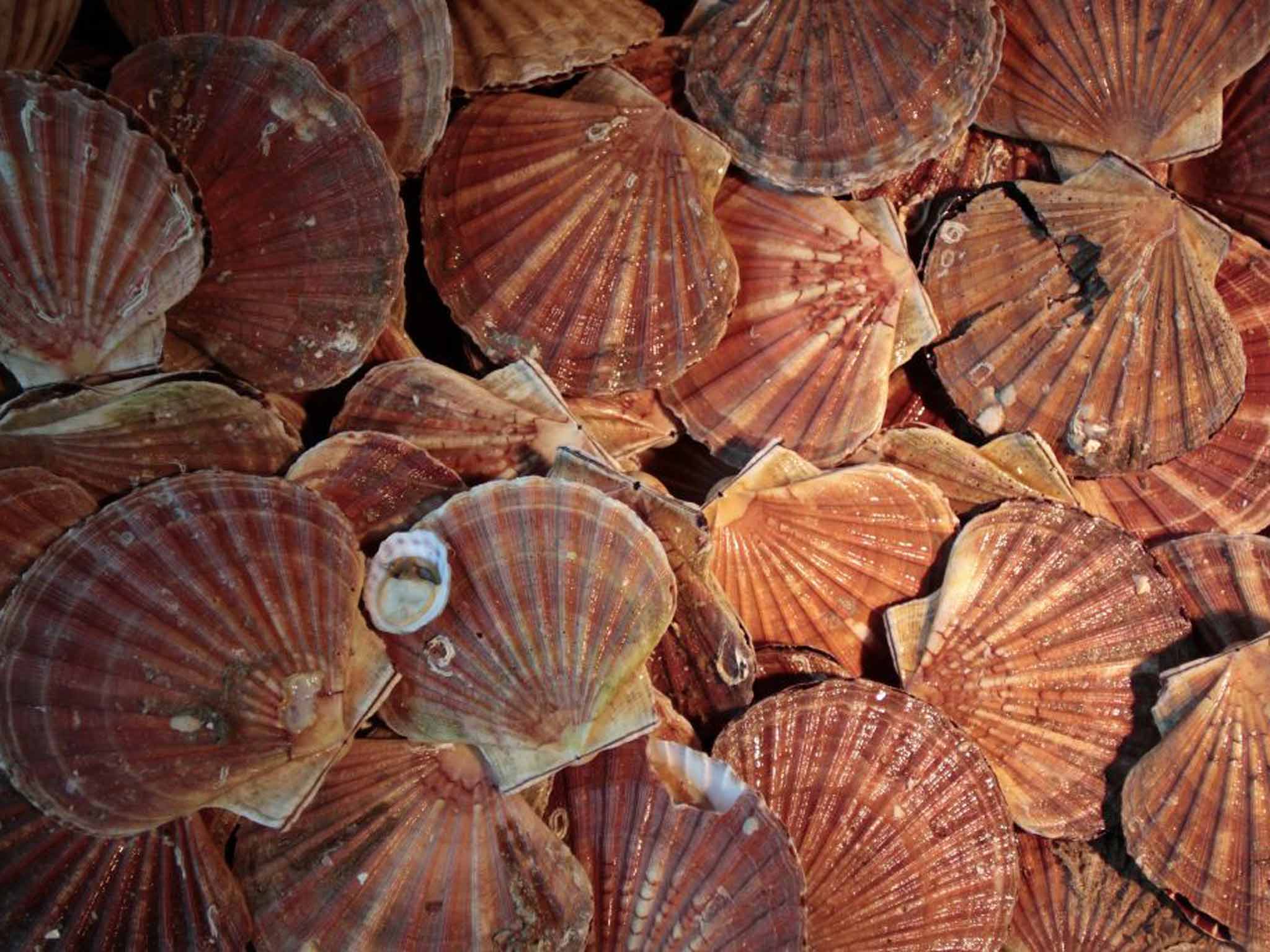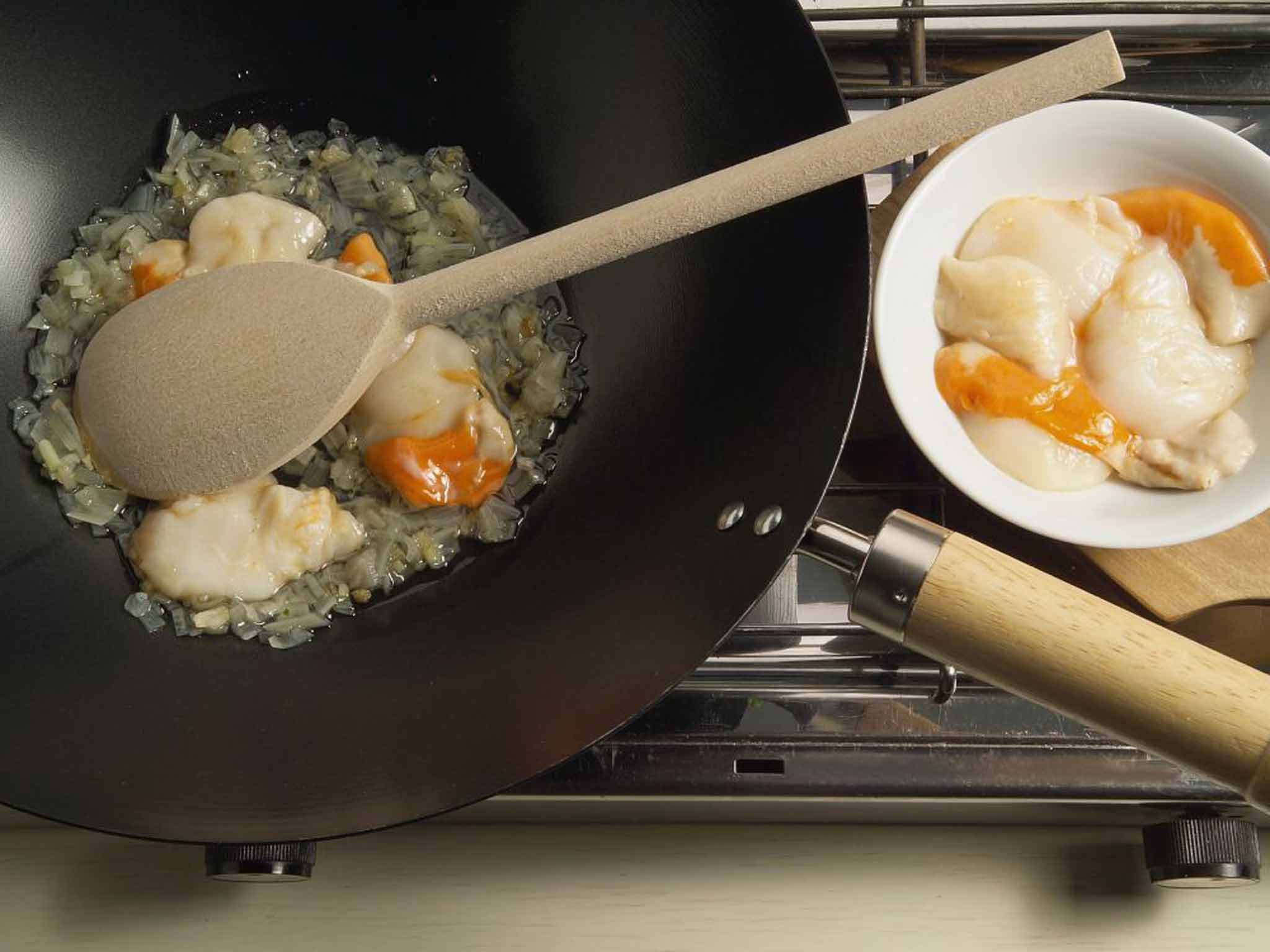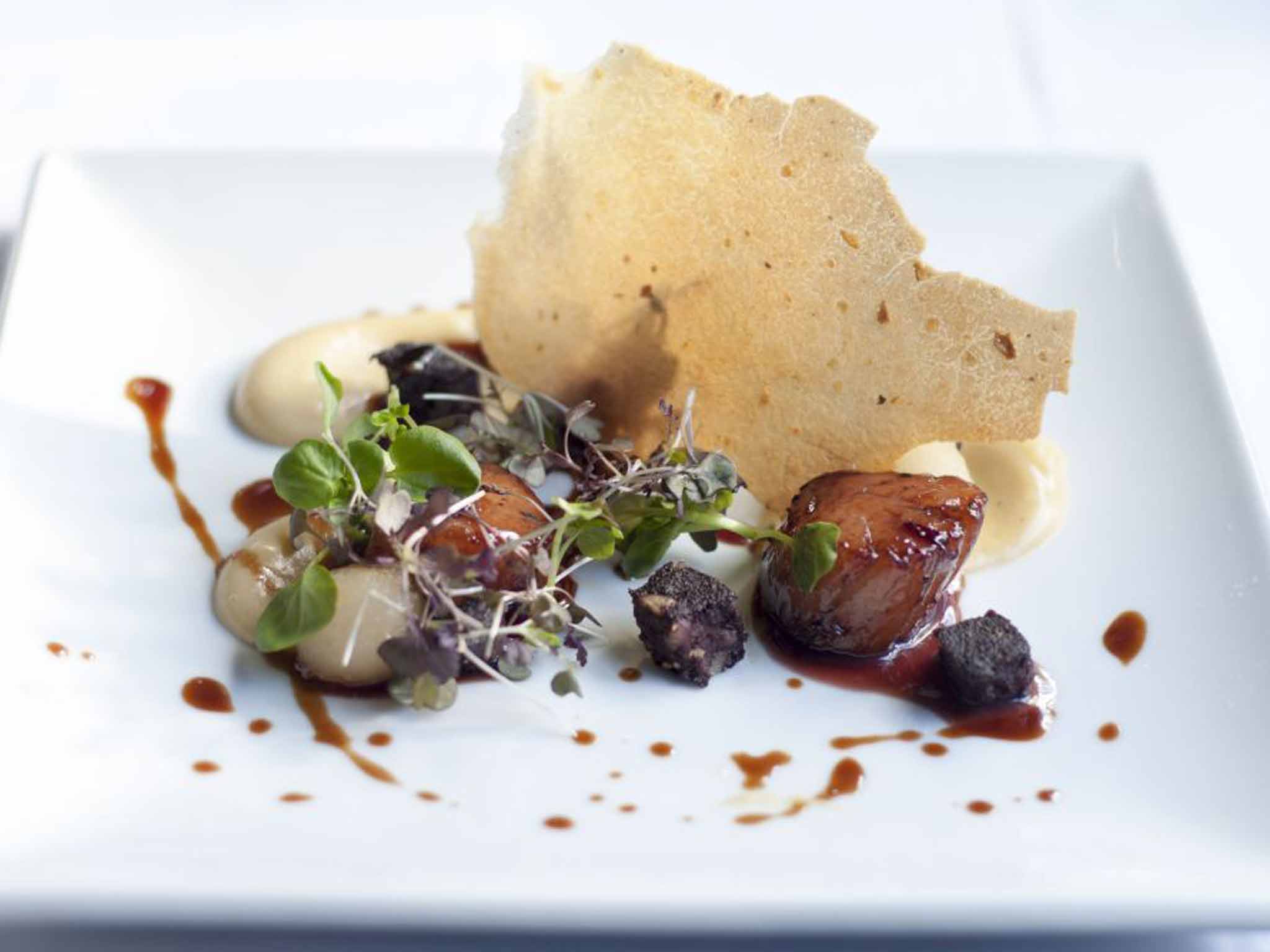Scallops in Rye: The festival that marks the peak of the scallop season
Over the past decade more and more Britons have discovered the plump, highly prized delights of scallops. As Britain's short season starts, Sophie Morris discovers a town that loves these hermaphrodite bivalve molluscs so much, they even crown their own Queen

The coastal East Sussex town of Rye has a famous history as one of the Roman Cinque Ports, a string of ports that defended the British coastline and offered trading routes inland. The town sits back from the sea, overlooking the salt marshes stretching down to Rye Harbour beach and Camber Sands, and its tall church spire has long acted as a guide for sailors.
Despite its rich past, the town continues to inaugurate new traditions, and last week a ceremony was held in the town, the crowning of its “Scallop Queen”. This light-hearted event heralds the start of the Rye Bay Scallop Week, an annual celebration of the plump, tasty, highly prized bivalves which have soared in popularity since Rye held its first scallop festival in 2003. And it doesn't discriminate on gender by the way – last year's Queen was male.
The festival marks the peak of the scallop season – they'll be at their best for the next few weeks – and thousands of scallops were shucked and sold, from food trucks, market stalls and the many pubs and restaurants which serve Rye's visitors, such as The Mermaid Inn which dates back to the 12th century.
Our taste for scallops has been increasing over the past decade, with sales up 14.9 per cent to £16.65m in the past year, according to industry body Seafish. The Financial Times named scallops one of its “affordable luxury” ingredients after Christmas 2015 saw consumers, sick of austerity, splash out on supermarket-bought, home-cooked gourmet foods.
You've probably seen or eaten the French dish Coquilles St Jacques, in which the scallops are baked in cream under a blanket of breadcrumbs and presented in their pretty, fan-shaped shells. As they thrive in all oceans, scallops are eaten across the globe and work just as well quickly fried with ginger and Asian greens. They also marry particularly nicely with the rich, piggy flavours of bacon and black pudding, and sweet vegetables such as peas and corn.
Since 1993, Rye's Mermaid Inn has been owned and run by Judith Blincow, who understands the allure of local scallops. “They are so good because of the way in which they are fished by the local fishing fleets,” she explains. “Local by-laws restricting the fishermen to harvesting their scallop catch from 1 November until 30 April are strictly adhered to by Rye's fleet, who use the small (under 10-metre) boats. The beds are checked regularly and allowed to regenerate when necessary. There are also size restrictions on the catch, leaving the smaller scallops in the water for future years.”
The Mermaid Inn is just one of the 27 local businesses that get involved with the scallop celebration, and a scallop menu is served there throughout the week. On it, you'll find red wine and port glazed scallops with parsnip, black pudding and pear; pan-seared scallops with quinoa and chive risotto, roasted cauliflower and pickled raisins; and scallop and brown shrimp ballotine with smoked mash and kale.
Blincow has worked at the Mermaid for more than three decades and estimates herself to have served more than 100kg of scallops last week. “A growing awareness of the product has encouraged more people every year to try them, and that is why the Rye Bay scallops festival has grown more popular, year on year,” she explains. “It reflects the trend for people to taste locally sourced fresh products. This also reflects a trend for healthy foods, and scallops are an excellent source of protein, calcium, iron and vitamin B12.”
Not only are they good for you, they're a really special kind of sea creature. We go crazy for oysters, our prized aphrodisiac, but scallops have lagged a little in the popularity stakes. As hermaphrodite bivalve molluscs they're somewhat unusual, but also pretty impressive: they can swim by clapping their shells together and propelling themselves through the oceans, and even have eyes.
Our growing desire for scallops could be measured by the success of the Ethical Shellfish Company, a family-run business on the Isle of Mull, which husband and wife Guy and Juliet Grieve set up in 2010. Guy, a former wilderness adventurer, saw how unethical fishing practices were harming marine environments, which prompted him to investigate how he could help to protect the oceans. The company now supports small fishermen, fishes to order, and supplies only hand-dived scallops – around 10,000 a week.
This approach has been welcomed by the many shops and restaurants who sell these scallops, which include Raymond Blanc at Le Manoir aux Quat'Saisons, the cream of London's seafood restaurants such as Scotts, Le Caprice, and J Sheekey, The Witchery in Edinburgh and Yorkshire's Hodgson Fish and Booths, the first British supermarket to stop selling dredged scallops.
“The real appeal with the dived scallops is that it's just so profoundly honest as a way to bring scallops to the table,” says Guy Grieve. “The dive fisher is the fishing gear, there's nothing in between, and there's something very pure about a human hand picking the scallop off the seabed for you.”
John Botterell runs the Rye fish merchant Botterells with his wife and two sons. They are fishermen, too, bringing in bass, dover sole, turbot, plaice, dabs and gurnards depending on the time of year, but when it's scallop season all efforts turn to processing them for market.

There are five scallop boats collecting the pretty shells from the seabeds in Rye, and more up and down the coast. They are dredged (a method which has met with controversy following reports of large trawlers in the North Sea damaging seabeds irreparably and using migrants as slave labour aboard Scottish vessels), but on a sustainable scale.
One way to avoid buying these unsustainable “blood scallops” is to only buy the hand-dived ones, as recommended by Hugh Fearnley-Whittingstall during his Fish Fight campaign. In Rye, however, all the scallop fishing is done from small boats that respect the harvest, dropping smaller scallops back under the waves for future catches.
“They're at their best right now,” says John Botterell. “They tend to get to their biggest at the end of February and early March. It's rather like asparagus or strawberries, where you get your four to six weeks of interest. In a way, the scallop week announces the season.
“I like mine best with some smoked haddock, cubed up and cooked with butter and oil. The cost is high, but to harvest them the cost is also very high. It's very hard work on the fishermen and on the boats.”
Kyle Tatner used to cook fine-dining dishes at The Mermaid Inn, but he's struck out on his own and his food truck is a new draw for scallop-lovers at the festival, and there are queues for his slow-braised pork belly with scallops and a local smoked fish chowder brimming with smoked scallops, haddock and mackerel.
“The Rye Bay scallops are lovely and plump, and we get through anything up to 80kg during the week. I think it's all to do with embracing what's good about our local area. We've got such great food down here and lots of new producers.”
If you're buying scallops, these large, meaty examples are known as king scallops and Botterell advises looking for specimens with a good-sized coral, the bright-orange pocket attached to the white flesh. This is the scallop's roe and is packed with nutrients and taste, though it is often removed. Smaller queenie scallops are also popular.
Grieve says we owe a lot to online communities for the resurgence of scallops, as consumers are learning more about seafood and food provenance. He's also hopeful about the power of small businesses to impact the market. “We're putting out a good amount of scallops but from a collection of small, low-intensity efforts. And the chefs have been wonderful.
“Their support of artisan fisheries through buying has had a better impact than anything a politician has done.”

Red Wine and Port Glazed Scallops, Honey Roasted Parsnip, Black Pudding & Poached Pear
Ingredients to serve 2 (main) or 4 (starter)
500ml of red wine
500ml of port
3 parsnips peeled and chopped
3 tablespoons of honey
2 knobs of butter
Dash of cream
2 peeled pears
200ml of water
50g of cane sugar
1 vanilla pod
1 star anise
1 cinnamon stick
200g black pudding
12 Rye Bay scallops
Reduce the red wine and the port to a combined 200ml. Peel and chop the parsnips. Season, then pour the honey on to them. Roast for at 180C until soft. When soft, purée and add a knob of butter and a dash of cream.
Dissolve the sugar in boiling water. Poach the peeled pears in the syrup of water and sugar, and add the vanilla, star anise and cinnamon.
Dice the black pudding and pan fry on a high heat. Season the scallops and pan fry them on a high heat, on one side for 1 and a half minutes, then pan fry the other side for the same time, and add a knob of butter.
Serve the scallops surrounded by the poached pear, parsnip purée and the black pudding.
Recommend serving with a dry white wine. We offer Sancerre Boisjoli on our wine list.
Recipe from The Mermaid Inn, Rye, mermaidinn.com
Join our commenting forum
Join thought-provoking conversations, follow other Independent readers and see their replies
Comments